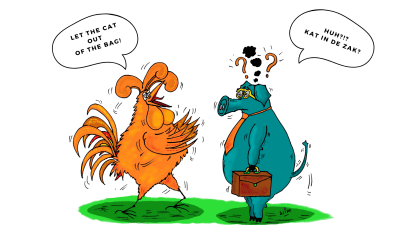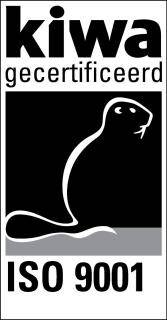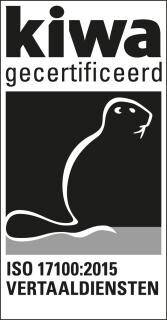
Why a literal translation might mean you miss the mark
Translating texts is not a standard process. Although this might sound strange, it’s true. Every day, AgroLingua receives a large number of translation projects and no two projects are the same. Some texts require the translator to produce a translation that remains close to the source, while others may allow for a free translation. Sometimes, a translation may involve switching between the two within a single text. An experienced translator can assess which approach is best suited to the project in question. This depends on several factors. In this blog, we will explain when it is appropriate to opt for a literal translation and when the project requires a different approach.
Opting for a literal or free translation isn’t a question of right or wrong. Instead, it comes down to the type of translation most suited to the project. There are two ways to translate a text: literal or free. A literal translation involves translating the words in exactly the same order as in the original text. A free translation on the other hand, reproduces the general message of the original text, but differs in form, style and tone of voice.
At AgroLingua, producing a correct translation is of paramount importance. We are translation specialists in the agricultural, horticultural, agricultural technology, animal husbandry, food and associated sectors. Additionally, we take language specific jargon into account, so you can rely on us for accurate and reliable translations that match your specific preferences.
Request a quote Request a free trial translation
A literal translation? Yes please!
For some projects, a literal translation is essential, otherwise you’ll miss the mark. A translator has little choice when translating forms; the only option is to produce a literal translation. Think, for example, of a survey form (name, address, date of birth, blood group etc.) or a claim form.
A translator’s hands are also tied when working on software translations (enter password, print, cancel), as here too, words are consistently translated one by one. When translating labels for food, cleaning and medicinal products, among others, a translation must remain close to the original text. A literal translation is only recommended if the target text consists of a list of several different words.
A literal translation? Preferably not!
A correctly translated manual is essential when exporting your products abroad. The main purpose of a manual is to convey information to the reader in a correct, clear and unambiguous way. Translating a manual is a very precise task, but it doesn’t only involve producing a literal translation. Grammar, sentence structure and reference words must be adapted to the target language to ensure that the text is properly understood.
A literal translation can lead to some cumbersome wording in a running text, which is why many translators prefer a semantic translation. Clearly presented manuals help prevent your products being used incorrectly and can even prevent serious accidents. This is why a high quality translation is essential, especially for agricultural companies operating internationally. This also applies to the translation of official documents, such as wills, diplomas, legal translations for court cases, scientific texts and technical texts in general.
A literal translation? Under no circumstances!
Sometimes, a translator must dare to let go of the structure and style of the original text completely, while retaining only the message of the text. This applies particularly to promotional texts, such as websites, brochures, adverts, slogans and other marketing texts. These texts should not only convey relevant information but also appeal to the (local) target group. Just because your ad hits the right notes in the Netherlands, the same ad might completely miss the mark abroad if the final translation is too literal.
We advise against including literal translations of proverbs and sayings. While there are some internationally known proverbs which are understood and used in many different languages, there are also a huge number of Dutch expressions that are unknown abroad. The same applies the other way round. When you are asked to tell a secret, in English you would say ‘Let the cat out of the bag’ while in German it would be ‘Lass die Katze aus dem Sack'. In the Netherlands, you can only buy the cat in the bag (de kat in de zak kopen), which has an entirely different meaning.
Fortunately, AgroLingua employs native speakers who know their language inside-out and always use the correct wording. They also know when a literal translation is required. This applies to more than 170 language combinations.
Use AgroLingua’s translation specialists for all your translations
Do you want to save time and avoid any unwanted consequences? Then ask the translation and language specialists at a certified translation agency.
A certified translation agency such as AgroLingua takes the translation process of texts within the agri-food sector very seriously. We only work with native speakers who speak your professional language, whether it concerns translations for the food industry, poultry farming or agriculture.
Are you curious about our translation services and what we can do for your business? Please contact us for more information.
Back to blogs





